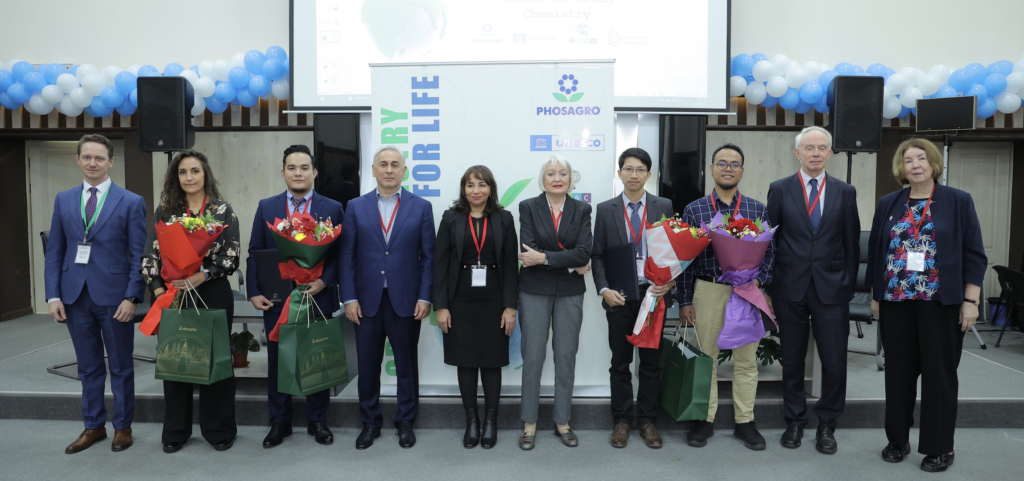The United Nations Educational, Scientific and Cultural Organization (UNESCO) has awarded grants for research in the field of green chemistry to leading young scientists from around the world in partnership with PhosAgro Group and the International Union of Pure and Applied Chemistry (IUPAC).
The award grant ceremony for the winners for the 7th UNESCO research grants projects in the field of Green Chemistry took place in Tashkent, Uzbekistan on 3rd November 2023. It took place at the International Symposium “Science for Sustainable Development: Challenges for Central Asia”, and was attended by representatives of the partners Phosagro, UNESCO and IUPAC. Christopher Brett, IUPAC Past President and Vice-Chair of the Scientific Advisory Board of UNESCO’s International Basic Sciences Programme said: “Interest in the programme has been growing rapidly every year and the topic of green chemistry for life has no limit. We are all aware of the challenges that humanity faces with respect to climate and green chemistry. Thus, we hope that this important and successful partnership will continue on an even broader scale.”

The international scientific jury selected seven winners whose research is aimed at developing breakthrough technologies in the fields of environmental stewardship, public health, food security, improved energy efficiency and natural resource management. The winners’ research focuses on the development of environmentally friendly nanobioherbicides for weed control (Afef Ladhari, Tunisia), the regeneration of coenzymes in the synthesis of biodiesel (Anita Šalić, Croatia), the development of green materials for solar cells (Federico Bella, Italy), the solvent- and catalyst-free synthesis of benzene derivatives (Hasmik Khachatryan, Armenia), the green synthesis of platinum- and nickel-based catalysts widely used in industry (Viet Huong Nguyen, Vietnam) and the transformation of biomass residues using photoelectrochemical cells (Antonio Otavio de Toledo Patrocinio, Brazil). Mohamad Azuwa Mohamed (Malaysia) received a special grant for a project involving phosphogypsum conversion.
> UNESCO earlier release (6 June 2021): Eight innovative research projects led by promising young scientists will receive the 2020 Green Chemistry for Life research grants
> Follow UNESCO for further announcement
< See current call for applications
